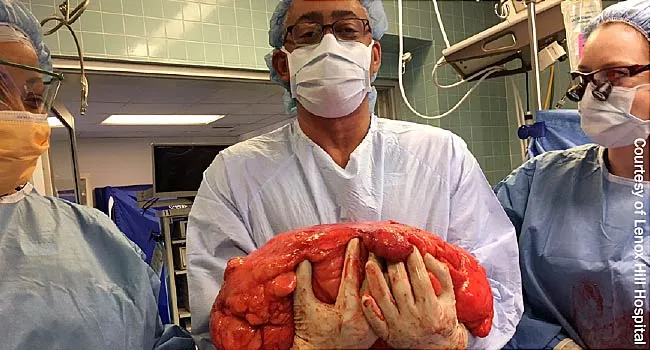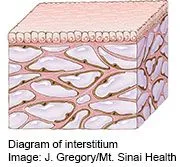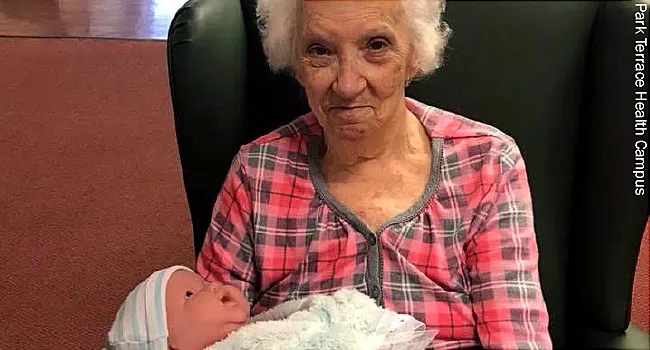Find information about health and nutrition from various and reliable sources all over the world, in just one site. World's latest headlines all in one place.
Saturday, March 31, 2018
Coffee cancer warning: What science says about the actual risk
From: http://www.cbsnews.com/news/coffee-cancer-warning-science-acrylamide-risk/
A mix of treatments may extend life for men with aggressive prostate cancer
For men diagnosed with aggressive cancer that’s confined to the prostate and nearby tissues, the overarching goal of treatment is to keep the disease from spreading (or metastasizing) in the body. Doctors can treat these men with localized therapies, such as surgery and different types of radiation that target the prostate directly. And they can also give systemic treatments that kill off rogue cancer cells in the bloodstream. Hormonal therapy, for instance, is a systemic treatment that kills prostate cancer cells by depriving them of testosterone, which fuels their growth.
Now a new study shows that a mix of different treatments, or a “multimodal” approach to prostate cancer therapy, lengthens survival in men who have this diagnosis. The study was limited to men with Gleason 9 and 10 cancers. The Gleason grading system ranks tumors by how likely they are to spread, and 10 is the highest rank on the scale.
“The takeaway finding is that men with high-grade, localized prostate cancer do better when they get multimodal care,” said Dr. Amar Kishan, an assistant professor of radiation oncology at the University of California, Los Angeles David Geffen School of Medicine, who led the study. “If they can tolerate it, then that’s what should be offered.”
Kishan and collaborators from 12 large hospitals in the United States and Norway pooled nearly 20 years of patient data from their respective institutions. The 1,809 men included in the study had each been treated in one of three different ways:
- with surgery to remove the prostate
- with a combination of external beam radiation (which directs high-energy rays at the tumor from sources outside the body) directed at the prostate, along with anti-testosterone hormonal therapy
- with hormonal therapy given together with external beam radiation and brachytherapy (which involves placing radioactive beads directly into the prostate gland).
After an average of five years of follow-up, 3% of the men given all three treatments (external beam radiation, brachytherapy, and hormone therapy) had died from prostate cancer. By contrast, 12% of the men treated with a combination of hormonal therapy and external beam radiation, and 13% of the men treated with surgery only, had died of their illness. Findings of metastatic cancer were similar, averaging 8% in the group given all three treatments, and 24% in the two other groups.
Side effects data from each group were not available.
This is the largest study yet to compare the three approaches, and importantly, it was restricted to men who began treatment no earlier than 2000. Radiation therapy has improved over time: the doses are higher and the treated areas are more precisely defined. Therefore, the evaluated approaches are consistent with the kind of treatments men would still get today.
Kishan said it’s possible that combining hormonal therapy with high-dose radiation and brachytherapy eliminates cancer in the prostate completely, so that metastases are held in check. Or, he says, radiation might stimulate the immune system to attack cancer. These hypotheses are now under investigation by researchers around the world.
Dr. Marc Garnick, the Gorman Brothers Professor of Medicine at Harvard Medical School and Beth Israel Deaconess Medical Center, and editor in chief of HarvardProstateKnowledge.org, said the study adds to growing evidence that therapies directed solely to the prostate gland, namely radiation or surgery by itself, may be improved by adding other treatments; in this case, hormonal therapy and a second form of radiation. “The study didn’t evaluate the addition of hormonal therapy to surgery, which would have been of interest,” he added. “However, the findings support multimodal therapy, though many unknowns, such as the potential for greater long-term side effects, still need to be addressed.”
The post A mix of treatments may extend life for men with aggressive prostate cancer appeared first on Harvard Health Blog.
From: Charlie Schmidt https://www.health.harvard.edu/blog/mix-treatments-may-extend-life-men-aggressive-prostate-cancer-2018033113521
Friday, March 30, 2018
Isaac Garcia's Story – Bone Cancer Care at Mayo Clinic
From: Mayo Clinic https://www.youtube.com/watch?v=SwTowLJWeZc
What to eat before a workout – and foods to avoid
From: http://www.cbsnews.com/news/what-to-eat-before-workout-foods-to-avoid/
Foods you shouldn't eat before a workout
From: http://www.cbsnews.com/video/foods-you-shouldnt-eat-before-a-workout/
Cell Transplant Helps Difficult Type 1 Diabetes
Some people with type 1 diabetes develop a condition called hypoglycemia unawareness, which means they no longer feel symptoms when their blood sugar levels are dropping dangerously.
From: https://www.webmd.com/diabetes/news/20180330/cell-transplant-helps-difficult-type-1-diabetes?src=RSS_PUBLIC
CDEL seeks scholarship applicants for Institute for Teaching and Learning
From: https://www.ada.org/en/publications/ada-news/2018-archive/march/cdel-seeks-scholarship-applicants-for-institute-for-teaching-and-learning
Penn dental school names new dean
From: https://www.ada.org/en/publications/ada-news/2018-archive/march/penn-dental-school-names-new-dean
More Women Die of Lung Cancer in 2 U.S. 'Hot Spots'
Nationwide, the rate of lung cancer death among women fell 6 percent between 1990 and 2015.
From: https://www.webmd.com/lung-cancer/news/20180330/more-women-die-of-lung-cancer-in-2-us-hot-spots?src=RSS_PUBLIC
ER Docs Prescribe More Opioids Than They Realize
Of 109 ER doctors at four hospitals, two-thirds underestimated how often they prescribed opioids such as OxyContin (oxycodone) and Vicodin (hydrocodone), the researchers said.
From: https://www.webmd.com/drug-medication/news/20180330/er-docs-prescribe-more-opioids-than-they-realize?src=RSS_PUBLIC
More Baseball Fans Getting Hit By the Ball
Each year, about 1,750 fans are hurt by foul balls at MLB games. That works out to about two injuries for every three games -- more common than batters getting hit by wayward pitches, according to Indiana University researchers.
From: https://www.webmd.com/a-to-z-guides/news/20180330/more-baseball-fans-getting-hit-by-the-ball?src=RSS_PUBLIC
Many Pick the Wrong Drugs for Sneezin' Season
Only 63 percent of people who visit their community pharmacy to purchase treatment for their hay fever have a doctor diagnosis, said study senior author Sinthia Bosnic-Anticevich.
From: https://www.webmd.com/allergies/news/20180330/many-pick-the-wrong-drugs-for-sneezin-season?src=RSS_PUBLIC
Synthetic cannabis blamed for severe bleeding
From: http://www.cbsnews.com/video/synthetic-cannabis-blamed-for-severe-bleeding/
Synthetic weed blamed for "very severe bleeding"
From: http://www.cbsnews.com/news/synthetic-marijuana-k2-spice-weed-cannabis-severe-bleeding-chicago/
Thrill of victory may pose big health risk for hockey fans
From: http://www.cbsnews.com/news/hockey-fans-beware-heart-risk-rises-after-home-team-wins/
Man's Stubborn Belly Fat Actually A 30-Pound Tumor

Doctors had expected it to be 12 lbs and were surprised that it was actually 30 lbs.
From: https://www.webmd.com/diet/obesity/news/20180330/mans-stubborn-belly-fat-actually-a-30-pound-tumor?src=RSS_PUBLIC
California Coffee Shops Must Post Cancer Warnings

The industry argued that the level of acrylamide in coffee isn't harmful and that any risks are outweighed by benefits, the AP reported.
From: https://www.webmd.com/cancer/news/20180330/california-coffee-shops-must-post-cancer-warnings?src=RSS_PUBLIC
Mayo Clinic Minute: Tai chi keeps seniors on their feet
From: Mayo Clinic https://www.youtube.com/watch?v=9vljJ0u-avg
CDC director pledges to bring opioid epidemic "to its knees"
From: http://www.cbsnews.com/news/cdc-director-pledges-to-bring-opioid-epidemic-to-its-knees/
California judge rules coffee must come with cancer warning
From: http://www.cbsnews.com/video/california-judge-rules-coffee-must-come-with-cancer-warning/
Why Whooping Cough Has Made a Comeback
It's due to natural population turnover, incomplete vaccination coverage, and gradually weakening protection from a highly effective but imperfect vaccine, they said.
From: https://www.webmd.com/children/news/20180329/why-whooping-cough-has-made-a-comeback?src=RSS_PUBLIC
Chronic pain and childhood trauma
Recently a journalist colleague of mine put out a call for quotes from those who suffer from severe premenstrual syndrome and premenstrual dysmorphic disorder (more commonly known as PMS and PMDD, respectively) who also suffered a history of childhood abuse. Her interest was piqued by a 2014 peer reviewed article that appeared in the Journal of Women’s Health linking the disorders with early onset abuse. I answered the call, having both PMS and PMDD, as well as a history of child abuse by both my stepfather and my mother.
Yet despite having both a history of abuse and several diagnoses that contribute to chronic pain, it’s only been in the past few years that I’ve become aware of the connection between the two. It wasn’t until I started writing a collection of personal essays about my youth, and researching scientific literature about childhoods like mine, that I stumbled upon the now-famous 1998 ACE study, which explored “adverse childhood experiences.” Specifically, the study surveyed 17,000 middle-income adults who had health data stretching back to their early childhoods. The ACE research indicated that the more adversities an individual experienced as a child — whether poverty, parental death or incarceration, neighborhood violence, or abuse — the more likely that person would suffer from serious physiological disorders as an adult.
Understanding the connection
While the causality between childhood adversity and adult chronic illness has yet to be fully determined, researchers now have enough knowledge about the way chronic stress impacts physiological health to make some educated guesses about their potential link. When we are threatened, our bodies have what is called a stress response, which prepares our bodies to fight or flee. However, when this response remains highly activated in a child for an extended period of time without the calming influence of a supportive parent or adult figure, toxic stress occurs and can damage crucial neural connections in the developing brain. According to Harvard’s Center on the Developing Child, the impacts of experiencing repeated incidents of toxic stress as a child “…persist far into adulthood, and lead to lifelong impairments in both physical and mental health.”
Why addressing pain and trauma should go hand in hand
The fact that childhood adversity is so intimately intertwined with adult illness does not mean that those physiological diseases experienced by adults who had traumatic childhoods are not real or valid, or that their causes are “psychosomatic.” The biological impacts of childhood adversity are not only genuine, but can be very difficult (and sometimes impossible) to completely undo.
However, it does offer hope that psychological care for those with a history of childhood trauma may help tame their overactive stress response in the present day, and in turn provide some complementary health benefits for those also dealing with physiological diseases. In my case, while processing my traumatic childhood history in psychotherapy has not automatically cured my physical ailments (and will not), it does help me relearn how to react to stress.
Pediatric health care providers and educators should understand how far into the future the effects of childhood abuse and adversity may extend. This knowledge should serve as further motivation to help children in these situations access necessary supports as quickly as possible, to guard against some of the biological changes that could make them suffer later on in life. Likewise, those who work in the mental health field with adults who suffered childhood trauma would well do to study the link between that and chronic pain and illness, so that they can better support their patients.
The post Chronic pain and childhood trauma appeared first on Harvard Health Blog.
From: Laura Kiesel https://www.health.harvard.edu/blog/chronic-pain-and-childhood-trauma-2018033012768
Starbucks must carry cancer warning in California, judge rules
From: http://www.cbsnews.com/video/starbucks-must-carry-cancer-warning-in-california-judge-rules/
Thursday, March 29, 2018
Diabetes Now Affects 23 Million U.S. Adults
The new CDC numbers were based on 2016 data on more than 33,000 adults from the federal government's National Interview Survey.
From: https://www.webmd.com/diabetes/news/20180329/diabetes-now-affects-23-million-us-adults?src=RSS_PUBLIC
Fentanyl Fuels Latest Spike in Opioid Deaths
Overdose deaths increased by 21.5 percent in 2016, a much sharper spike than the 11.4 percent increase seen the previous year, researchers from the U.S. Centers for Disease Control and Prevention reported.
From: https://www.webmd.com/mental-health/addiction/news/20180329/fentanyl-fuels-latest-spike-in-opioid-deaths?src=RSS_PUBLIC
Poisoned by bitter squash, two women lose their hair
From: http://www.cbsnews.com/news/poisoned-by-bitter-squash-two-women-lose-their-hair/
Childhood Obesity Driving Cancers in Young Adults
A new review found that certain cancers associated with people over 50 now affect people at younger ages more frequently. And obesity may be to blame.
From: https://www.webmd.com/diet/obesity/news/20180329/childhood-obesity--driving-cancers-in-young-adults?src=RSS_PUBLIC
Too Few Baby Boomers Get Hepatitis C Screening
Women were less likely to have been screened than men. The researchers also found that among baby boomers and Americans born between 1966 and 1985, HCV screening rates were lower among Hispanics and blacks.
From: https://www.webmd.com/hepatitis/news/20180329/too-few-baby-boomers-get-hepatitis-c-screening?src=RSS_PUBLIC
Unhealthy Phthalates Found in Restaurant Food
The findings suggest that old-fashioned home-cooked meals could be one way for people to reduce their intake of phthalates -- which have been linked to certain health risks.
From: https://www.webmd.com/diet/news/20180329/unhealthy-phthalates-found-in-restaurant-food?src=RSS_PUBLIC
Man’s "beer belly" turned out to be 30-pound tumor
From: http://www.cbsnews.com/news/mans-beer-belly-turned-out-to-be-a-massive-tumor/
Mayo Clinic Minute: Stop the bleed, save a life
From: Mayo Clinic https://www.youtube.com/watch?v=2TrVcQTxHqY
Ethics Illustrated: How to Avoid Conflicts of Interest
From: USDA https://www.youtube.com/watch?v=UH5r3EoM9cc
Could cancer "vaccine" that cured tumors in mice work for people?
From: http://www.cbsnews.com/news/cancer-vaccine-cured-tumors-in-mice-whats-that-mean-for-people/
Researchers Making Progress Against Ovarian Cancer
One study found that a new targeted "immunotherapy" to treat ovarian cancer that has come back looked promising in a small, early trial.
From: https://www.webmd.com/ovarian-cancer/news/20180329/researchers-making-progress-against-ovarian-cancer?src=RSS_PUBLIC
Americans Fear Medical Bills More Than Illness
More respondents (40 percent) feared the cost of treating a serious illness than feared becoming ill (33 percent).
From: https://www.webmd.com/health-insurance/news/20180329/americans-fear-medical-bills-more-than-illness?src=RSS_PUBLIC
Phone-Using Drivers Knowingly Ignore the Danger
Nearly 58 percent said talking on a cellphone while driving is a very serious threat to their safety, while 78 percent said texting is a significant danger.
From: https://www.webmd.com/a-to-z-guides/news/20180329/phone-using-drivers-knowingly-ignore-the-danger?src=RSS_PUBLIC
Big Weight Loss May Bring Big Relationship Changes
One of the new studies tracked the relationship histories of nearly 2,000 obese Swedes who underwent weight-loss surgery over 10 years. The investigators compared the patients with about 1,900 obese adults who did not have surgery.
From: https://www.webmd.com/diet/obesity/news/20180328/big-weight-loss-may-bring-big-relationship-changes?src=RSS_PUBLIC
U.K. Man Has World's Worst Case of Super-Gonorrhea

It's the first case of the sexually-transmitted disease that could not be cured with the main antibiotic treatment, a combination of azithromycin and ceftriaxone, according to Public Health England, BBC News reported.
From: https://www.webmd.com/sexual-conditions/news/20180329/uk-man-has-worlds-worst-case-of-super-gonorrhea?src=RSS_PUBLIC
Where do you stand on bystander CPR?
Follow me on Twitter @RobShmerling
A recent survey confirmed what many have suspected: if you collapsed, there’s a good chance that the average bystander would not be prepared to perform cardiopulmonary resuscitation (CPR). And if they tried to revive you, there’s an even better chance they wouldn’t do it correctly.
Of course, there is a certain circularity to this — if you don’t know how to perform CPR, or if you know how but aren’t sure you’ll perform it correctly, you’ll be less likely to try.
So why are so few prepared?
The list of reasons is long, including:
- no prior instruction or certification
- fear of doing it wrong or being blamed for causing more harm than good
- waiting for someone else (who “knows what they’re doing”) to do it
- little faith in the effectiveness of CPR
- the victim might be sick with something the rescuer could catch
- the “ick factor,” that is, a potential rescuer is put off by the thought of having mouth-to-mouth contact with a stranger (even though current guidelines do not recommend mouth-to-mouth resuscitation).
A new study suggests there’s room for improvement
A new survey performed by the Cleveland Clinic asked 1,000 people about CPR. It also asked about symptoms of stroke and heart attack, since these are conditions for which bystander help can make a big difference.
The results were disappointing:
- Only 54% reported knowing how to perform CPR. While this is actually more than I would have predicted, it likely represents an overestimation, since many did not know some of the key details about it (as noted below).
- Only 17% knew that current recommendations for bystander CPR have eliminated the mouth-to-mouth part; bystander CPR now involves only chest compressions.
- Only 11% knew the proper rate of chest compressions (100 to 120 per minute). Certain songs can help you pace compressions without counting.
- Only about a quarter reported having an automated external defibrillator at work.
- About six in 10 people believed sudden numbness or weakness of the face, arm, or leg were symptoms of heart attack (when, in fact, those are more commonly symptoms of stroke).
- Thirty-nine percent thought slurred speech (a symptom of stroke) was a symptom of a heart attack.
- Less than half knew that back or jaw pain, nausea, and vomiting could represent symptoms of a heart attack.
- Only about a third of respondents knew that victims of heart attack should chew an aspirin right away (more on that in a moment).
There’s much you can do — and it’s not difficult
Whatever the reasons for these findings, there seems little justification for it. After all, CPR is much easier now that mouth-to-mouth resuscitation is no longer recommended. And while it’s true that many people don’t survive cardiac arrest — the numbers vary by study, but some studies find rates of survival for out-of-hospital cardiac arrest at less than 5% — chances for survival are higher with bystander help. Instructions regarding the appropriate use of CPR and automated external defibrillators (AEDs) are not complicated and are widely available.
But wait, there’s more!
CPR is only one way to help someone with a medical emergency. Some other things you can do to help include:
- Try to rouse the person.
- Check for a pulse and whether the person is breathing.
- Call 911 — in most cases, this is the very first thing you should do.
- If heart attack is suspected, instruct the person to chew one full strength or three baby aspirin (total of about 325 mg) over 30 seconds; people with heart disease should be carrying aspirin with them.
- Instruct others to find the nearest AED. Don’t be afraid to use it — they are designed to be used by anyone.
- Calling for help, providing reassurance, and staying with a person in need can make a big difference to someone who is critically ill and frightened.
What now?
If you never learned to perform CPR, maybe now is the time. Some of the biggest obstacles (such as having to perform mouth-to-mouth resuscitation) have been removed. So, admit it — you’re running out of excuses! Learn CPR. You could save a life. And even if you never have the opportunity to perform CPR, at least you’ll be ready to try.
The post Where do you stand on bystander CPR? appeared first on Harvard Health Blog.
From: Robert H. Shmerling, MD https://www.health.harvard.edu/blog/where-do-you-stand-on-bystander-cpr-2018032913535
Write your own Note to Self
From: http://www.cbsnews.com/video/write-your-own-note-to-self/
Justin Verlander on baseball, Kate Upton, and spring allergies
From: http://www.cbsnews.com/news/justin-verlander-houston-astros-baseball-marriage-to-kate-upton-and-seasonal-allergies/
Wednesday, March 28, 2018
Mayo Clinic Minute: New device can prevent migraine attacks
From: Mayo Clinic https://www.youtube.com/watch?v=STelA_Kt7Po
Immigrants' Hearts Healthier Than Many Born in U.S.
Native-born Americans also had a higher rate of stroke -- 2.7 percent for both men and women, versus 2.1 percent for foreign-born men and 1.9 percent for foreign-born women.
From: https://www.webmd.com/heart-disease/news/20180328/immigrants-hearts-healthier-than-many-born-in-us?src=RSS_PUBLIC
Are Meat Eaters Contributing to Climate Change?
Beef is a major source of greenhouse gas emissions associated with food production, the researchers said in a new study.
From: https://www.webmd.com/food-recipes/news/20180328/are-meat-eaters-contributing-to-climate-change?src=RSS_PUBLIC
Pot Smoking Might Lead Users to Cigarettes
While cigarette smoking is declining in the United States, the relaxation of laws against marijuana means its use is on the rise.
From: https://www.webmd.com/news/20180328/pot-smoking-might-lead-users-to-cigarettes?src=RSS_PUBLIC
Big Weight Loss May Bring Big Relationship Changes
One of the new studies tracked the relationship histories of nearly 2,000 obese Swedes who underwent weight-loss surgery over 10 years. The investigators compared the patients with about 1,900 obese adults who did not have surgery.
From: https://www.webmd.com/sex-relationships/news/20180328/big-weight-loss-may-bring-big-relationship-changes?src=RSS_PUBLIC
Apps that prod people to take their pills – resourceful or risky?
From: http://www.cbsnews.com/news/selfie-medicine-phone-apps-push-people-to-take-their-pills/
Rubber Duckies Swimming With Bacteria: Study

Researchers tested the bath-time toys and found that they had high levels of bacteria, the Associated Press reported.
From: https://www.webmd.com/children/news/20180328/rubber-duckies-swimming-with-bacteria-study?src=RSS_PUBLIC
Rubber ducks may be haven for nasty germs
From: http://www.cbsnews.com/news/rubber-ducks-may-be-haven-for-nasty-germs/
Universal Health Coverage: everyone, everywhere
From: World Health Organization https://www.youtube.com/watch?v=CyRJ2ZcC07M
Groups Sue FDA to Speed Review of E-Cigarettes
According to the groups, the FDA's decision to delay the review means that currently available e-cigarettes and cigars can continue to be sold without information about their health risks or any scientific evidence to support claims of public health benefits.
From: https://www.webmd.com/smoking-cessation/news/20180328/groups-sue-fda-to-speed-review-of-e-cigarettes?src=RSS_PUBLIC
Alzheimer's Stigma a Barrier to Prevention, Care
Researchers gave a random sample of 317 adults a fictional description of a patient with mild cognitive impairment or dementia due to Alzheimer's. Respondents were told the patient's condition would worsen, improve or stay the same.
From: https://www.webmd.com/alzheimers/news/20180328/alzheimers-stigma-a-barrier-to-prevention-care?src=RSS_PUBLIC
MRI Sheds Light on Brain Networks Tied to Autism
In the study, the Chinese team used an MRI technology known as diffusion tensor imaging (DTI). This technique provides important information on the conditions of the brain's "white matter," the researchers explained.
From: https://www.webmd.com/brain/news/20180327/mri-sheds-light-on-brain-networks-tied-to-autism?src=RSS_PUBLIC
Apple cider vinegar… for heartburn?
I’ve always thought it sounded counterintuitive to use an acid to alleviate indigestion, but the number of times I’ve heard people treat their symptoms of heartburn with apple cider vinegar is too large to count. So, I decided to look into whether this strategy works, and to do some investigation about the idea behind its use. To my surprise, there is no research published in medical journals that addresses using raw apple cider vinegar to treat heartburn, despite widespread use and recommendations from blogs and websites.
What is heartburn?
Heartburn is most commonly caused by stomach acid contents traveling up into the esophagus, the pipe that connects the mouth to the stomach. Unlike the stomach, the esophagus is not used to the presence of acid. The stomach acid irritates the esophagus, leading to several symptoms including throat clearing, burning sensation in the chest and neck, sour sensation in the mouth, cough, and bloating. It is not a pleasant feeling. It’s what we call GERD, or gastroesophageal reflux disease.
There are several reasons why gastric contents move up into the esophagus instead of going down to the bowel. The relaxation of the lower esophageal sphincter (LES), a valve that sits between the esophagus and the stomach, is the most common culprit. The LES is usually closed, creating a contained system to digest food. But it opens from time to time, to let air out in the form of belching. Reflux mostly happens when the valve relaxes too much, or too often. It allows not only gas but also gastric acid to move up, causing the discomfort.
There is a theory stating that what controls the LES is the stomach’s acidity. If for some reason the stomach is not producing enough acid, the muscles around the LES would relax, resulting in more reflux. However, the mechanism that controls this valve is much more complex than the level of gastric acidity. It involves a complex network of involuntary muscles and several different hormones and neurotransmitters.
Medications for heartburn
The gold standard to treat heartburn is to take an over-the-counter class of medications called proton pump inhibitors (PPIs) that reduce stomach acidity. Using these drugs will not prevent reflux, but can reduce inflammation in the esophagus, allowing it to heal. Avoid taking these medications for more than a month, unless recommended by your doctor. It is not unusual to become used to PPIs. After taking them for a few weeks it may be hard to wean off of them, because stopping can cause rebound symptoms. PPI side effects are minimal, but long-term use can cause osteoporosis, infections, and a decrease in the absorption of nutrients.
Antacids and medications such as ranitidine and famotidine (H2 blockers) may work well and have fewer side effects, but if these strategies do not make you feel better within a few weeks, it is a good idea to consult with your doctor. Although rare, heartburn could be a sign of other serious illnesses.
Self-help measures for heartburn
Another approach that may be quite effective and free of side effects is to change specific behaviors:
- Avoid foods known to cause heartburn: coffee, chocolate, alcohol, fatty foods, tomato, spicy foods, and acidic foods.
- Avoid lying down for at least two to three hours after a meal.
- Eat small meals.
- Lose weight if you need to.
- Don’t smoke, and if you already do, try to quit.
But what about taking apple cider vinegar for heartburn? Since we have no data to support the effectiveness or safety of its use for heartburn, it’s probably a good idea to stick to drizzling this deliciousness on colorful salads for now.
The post Apple cider vinegar… for heartburn? appeared first on Harvard Health Blog.
From: Marcelo Campos, MD https://www.health.harvard.edu/blog/apple-cider-vinegar-for-heartburn-2018032813530
Medical E-Records Not Without Risks: Study
The analysis of more than 1.7 million reports from the Pennsylvania Patient Safety Authority and another mid-Atlantic health system found 557 cases of possible patient harm in which problems using electronic record systems were a factor.
From: https://www.webmd.com/a-to-z-guides/news/20180328/medical-e-records-not-without-risks-study?src=RSS_PUBLIC
Could Coffee Perk Up Your Heart Health?
The study couldn't prove cause-and effect, of course, and coffee didn't seem help the arteries of smokers, the researcher found.
From: https://www.webmd.com/food-recipes/news/20180328/could-coffee-perk-up-your-heart-health?src=RSS_PUBLIC
#AsktheMayoMom about about Antibiotic Stewardship and Improving the Use of Antibiotics
From: Mayo Clinic https://www.youtube.com/watch?v=adJjp-sRUKg
Couple sues fertility clinic after losing their "only chances" for 2nd child
From: http://www.cbsnews.com/news/ohio-fertility-clinic-failure-university-hospitals-couple-sues/
Tuesday, March 27, 2018
Some rural hospitals exploited by health care executives
From: http://www.cbsnews.com/video/some-rural-hospitals-exploited-by-health-care-executives/
Genetic Testing: Do You Really Want to Know?

Genetic testing is already a billion-dollar industry, and some research estimates that it could grow to $10 billion in the next decade.
From: https://www.webmd.com/breast-cancer/news/20180327/genetic-testing-do-you-really-want-to-know?src=RSS_PUBLIC
Prince died from sky-high levels of fentanyl, report shows
From: http://www.cbsnews.com/news/prince-died-from-sky-high-levels-of-fentanyl-report-shows/
Recall: Treats May Spike Dog’s Thyroid Hormones

The thyroid hormone comes from ground livestock gullets -- cuts of meat from the cow’s throat. When these parts are used to make dog treats, it can send a dog’s thyroid gland into overdrive.
From: https://pets.webmd.com/dogs/news/20180327/recall-treats-may-spike-dogs-thyroid-hormone?src=RSS_PUBLIC
ADHD Tied to Brain Size Changes in Young Children
The investigators found that those children with ADHD had significantly reduced volume in multiple regions of the cerebral cortex, including the frontal, temporal and parietal lobes.
From: https://www.webmd.com/add-adhd/news/20180327/adhd-tied-to-brain-size-changes-in-young-children?src=RSS_PUBLIC
Newly Discovered Human Organ May 'Drive Advances'

This discovery, his team said, could also lead to new ways to treat a wide range of health issues, including cancer and age-related conditions.
From: https://www.webmd.com/a-to-z-guides/news/20180327/newly-discovered-human-organ-may-drive-advances?src=RSS_PUBLIC
ADA, ADAF scientists present work at national conference
From: By Michelle Manchir
https://www.ada.org/en/publications/ada-news/2018-archive/march/ada-adaf-scientists-present-work-at-national-conference
'I show kids they can make it out'
From: By Michelle Manchir
https://www.ada.org/en/publications/ada-news/2018-archive/march/i-show-kids-they-can-make-it-out
Leading a concerted effort to improve oral health
From: By Kimber Solana
https://www.ada.org/en/publications/ada-news/2018-archive/march/leading-a-concerted-effort-to-improve-oral-health
Dolls May Comfort People With Alzheimer’s

Toy dolls can bring children comfort. And they may provide a similar perk later in life for people with dementia.
From: https://www.webmd.com/features/baby-dolls-dementia-alzheimers?src=RSS_PUBLIC
Alarm system on failed embryo tank was off, fertility clinic says
From: http://www.cbsnews.com/news/university-hospitals-alarm-system-was-off-on-failed-embryo-tank-ohio/
Reading With Toddlers Boosts More Than Language
Evaluating prior studies on parent-child reading in children up to age 6, researchers in Hong Kong found positive effects for both sides in so-called psychosocial functioning, which includes mental well-being, emotions, behavior and relationships with others.
From: https://www.webmd.com/children/news/20180327/reading-with-toddler-boosts-more-than-language?src=RSS_PUBLIC
Aging Can Be Tough to Swallow
The study included 31 adults, ages 62 to 91, with no swallowing problems, and 33 healthy young adults, ages 18 to 28. Both groups underwent an X-ray video test that revealed the mechanics of their swallowing.
From: https://www.webmd.com/healthy-aging/news/20180326/aging-can-be-tough-to-swallow?src=RSS_PUBLIC
How to Talk to Loved Ones about Type 2 Diabetes Risk

An estimated 84 million Americans are at risk for developing type 2 diabetes—and someone you love could be among them. However, many people don’t realize that type 2 diabetes can be delayed or even prevented with healthy lifestyle changes. This means that even if your loved ones are at risk for diabetes, there’s still time for them to take the steps necessary to turn their health around.
Today, March 27, is American Diabetes Association Alert Day®, an opportunity to encourage the people in your life to learn their risk for type 2 diabetes by taking the one-minute Risk Test.
Not sure how to bring the topic up? Follow these tips to help your friends and family members learn about their risk for type 2 diabetes.
- Bring backup: You may have an understanding of type 2 diabetes, but not everyone does. Make sure to be prepared with information about diabetes symptoms and risk factors. You can review our resources on diabetes.org or work with your loved one’s health provider to gather this information.
- Be understanding: Unfortunately, type 2 diabetes has many myths and negative stigmas surrounding it. Diabetes can happen to anyone—but even if you understand this, your loved one may view your concern as an attack. Let your loved one know that you care about his or her health, and want to help prevent or delay a type 2 diagnosis.
- Get educated: Consider joining a support group or diabetes education class with your loved one so that you can learn more together. Our local field offices can help you find options for in-person opportunities in your area. You can contact your nearest office here, or search for local recognized education programs here.
- Take things slowly: Your health doesn’t change overnight. If your loved one is living with multiple risk factors, he or she may be overwhelmed by the thought of making long-term lifestyle changes. Let your loved one know that you’re in it for the long haul, and will be there for support.
- Build a team: Depending on your loved one’s Risk Test results, you may need to consult with a doctor or other health care professional. You can help your loved one build a diabetes care team, from a PCP, to an endocrinologist, to a mental health counselor. Our local offices can help with this, as can our new Mental Health Provider Directory.
Nearly half of all American adults live with diabetes or prediabetes, and chances are someone you love is one of them. Encourage them to make a change this Alert Day.
From: American Diabetes Association http://diabetesstopshere.org/2018/03/27/how-to-talk-to-loved-ones-about-type-2-diabetes-risk/
Good news: fewer teens are being bullied
Follow me on Twitter @drClaire
New data from the US Department of Education brings some really good news: fewer teens are being bullied. In 2007, 31.7% of students ages 12 to 18 reported being bullied. In 2015, that number was down to 20.8%, a drop of a third.
Other stats were also encouraging:
- In 2007, 9.7% reported being called a hate-related word, compared with 7.2% in 2015
- The percentage of teens reporting being bullied at school dropped from 6.6% in 2007 to 4.2% in 2015
- More teens are telling an adult about bullying: those numbers went from 36.1% in 2007 to 43.1% in 2015.
There are still too many kids getting bullied, so we still have more work to do, but this is a sign that the work we’ve done so far is making a difference. And we have done a lot of work, through educational campaigns, media and social media, as well as tremendous work within schools:
- Bullying has been clearly described and identified. This makes it easier for everyone to recognize bullying when they see it — and do something. There will always be some gray area, but we have much more clarity than before.
- There is a clear consensus that bullying is a bad behavior that should be stopped. This has not always been the case. In many situations, bullying behavior was normalized, thought to be part of school and life in general. Now we understand better how harmful it can be. Because of this…
- Bullying is not tolerated, or at least it is much less tolerated. Youth have learned to call it out — and many schools have strict anti-bullying policies.
- Educational efforts have given youth and adults strategies to identify and deal with bullying.
Ultimately, what all of this adds up to is a culture shift. Bullying is far from gone, and we need to keep up our efforts, especially in our current political climate, with people taking sides and some hate-related behaviors on the rise. But we think about bullying differently now than we did 10 years ago, and that’s a good thing.
Even more, the efforts against bullying have given us a blueprint for cultural change: bring the behavior out of the shadows, talk about it, educate — and give people tools and resources. Hopefully we can use this blueprint more — we are seeing it now with the #metoo movement — and help make our society a healthier, more welcoming place for all.
The post Good news: fewer teens are being bullied appeared first on Harvard Health Blog.
From: Claire McCarthy, MD https://www.health.harvard.edu/blog/good-news-fewer-teens-are-being-bullied-2018032713549
Mayo Clinic Minute: Understanding chronic kidney disease
From: Mayo Clinic https://www.youtube.com/watch?v=8jcL3TlgF4A
ADA offers opioids prescribing recommendations in FDA comments
From: https://www.ada.org/en/publications/ada-news/2018-archive/march/ada-offers-opioids-prescribing-recommendations-in-fda-comments
ADA offers support for ‘Good Samaritan’ bill
From:
By Kimber Solana
https://www.ada.org/en/publications/ada-news/2018-archive/march/ada-offers-support-for-good-samaritan-billNew spending bill earmarks $4 billion for opioids
From: https://www.ada.org/en/publications/ada-news/2018-archive/march/new-spending-bill-earmarks-4-billion-for-opioids
Monday, March 26, 2018
Some rural hospitals used for big insurance reimbursements thanks to loophole
From: http://www.cbsnews.com/video/some-rural-hospitals-used-for-big-insurance-reimbursements-thanks-to-loophole/
How some rural hospitals were used to score huge paydays
From: http://www.cbsnews.com/news/how-some-rural-hospitals-were-used-to-score-huge-paydays/
Global use of antibiotics soars as resistance crisis worsens
From: http://www.cbsnews.com/news/antibiotics-use-soars-as-resistance-crisis-worsens/
A Grand Moment for Doug Walsh - Proton Beam - Mayo Clinic
From: Mayo Clinic https://www.youtube.com/watch?v=FXRofJ6mfvU
So what is it that you do here? Featuring Barb Rechtzigel - New Employee Orientation -
From: Mayo Clinic https://www.youtube.com/watch?v=v-eNg_8XH8U
Hoverboard Injuries Speeding U.S. Kids to the ER
Nearly 27,000 kids landed in the emergency room from a hoverboard accident during the first two years the self-balancing, two-wheeled motorized scooters were sold in the United States, according to a new study.
From: https://www.webmd.com/children/news/20180326/hoverboard-injuries-speeding-us-kids-to-the-er?src=RSS_PUBLIC
Anti-Vaccine Movement Affecting Kids With Autism
Investigators tracked vaccination histories among all of the children through 2015. Vaccination records among younger siblings (born between 1997 and 2014) were also reviewed.
From: https://www.webmd.com/children/news/20180326/anti-vaccine-movement-affecting-kids-with-autism?src=RSS_PUBLIC
Study: Kids with autism, siblings at risk from skipping shots
From: http://www.cbsnews.com/news/vaccine-myth-persists-as-families-affected-by-autism-refuse-shots/
U.S. Opioid ODs Cluster in Centers of Poverty
Of the more than 515,000 Americans who have died from drug overdoses since 2006, most lived in poor areas where there were few job opportunities, researchers discovered.
From: https://www.webmd.com/mental-health/addiction/news/20180326/us-opioid-ods-cluster-in-centers-of-poverty?src=RSS_PUBLIC
Most With Very High Cholesterol Missing Right Meds
The investigators also looked at a subgroup of patients with familial hypercholesterolemia, a genetic disorder that causes extremely high cholesterol that increases the risk of early heart disease.
From: https://www.webmd.com/cholesterol-management/news/20180326/most-with-very-high-cholesterol-missing-right-meds?src=RSS_PUBLIC
Accidental activist: life changes lead dentist to speak on opioid harms
From: By Jennifer Garvin
https://www.ada.org/en/publications/ada-news/2018-archive/march/accidental-activist-life-changes-lead-dentist-to-speak-on-opioid-harms
New Moms Still Wary of Exposing Infants to Peanuts
For years, doctors instructed parents to delay exposing children to peanuts and other common food allergens, particularly those at high risk for peanut allergy. But this longstanding recommendation was reversed in 2017.
From: https://www.webmd.com/children/news/20180323/new-moms-still-wary-of-exposing-infants-to-peanuts?src=RSS_PUBLIC
Sports 'Sponsorships' Hawk Junk Food to Kids
Overall, 76 percent of foods were deemed unhealthy, and over half of beverages were sugar-sweetened.
From: https://www.webmd.com/fitness-exercise/news/20180326/sports-sponsorships-hawk-junk-food-to-kids?src=RSS_PUBLIC
These are the healthiest communities in the U.S.
From: http://www.cbsnews.com/news/the-healthiest-communities-in-the-united-states/
Outcry after 144 psychiatric patients die during transfer to other facilities
From: http://www.cbsnews.com/news/south-africa-shocked-by-deaths-of-144-psychiatric-patients/
A barber shop where customers get their medical checkups
From: http://www.cbsnews.com/video/a-barber-shop-where-customers-get-their-medical-checkups/
Many Doctors Don't Push HPV Shots To Boys
HPV is a sexually transmitted virus that can cause cervical, vulvar, vaginal, penile, anal, mouth and throat cancers. The HPV vaccine is recommended as a routine childhood vaccination.
From: https://teens.webmd.com/news/20180326/many-doctors-dont-push-hpv-shots-equally-to-boys?src=RSS_PUBLIC
Dentists say they support limits on opioid prescriptions
From: http://www.cbsnews.com/news/dentists-say-they-support-7-day-limits-on-opioid-prescriptions/
Rethinking A1C goals for type 2 diabetes
“Treat the patient, not the number.” This is a very old and sound medical school teaching. However, when it comes to blood sugar control in diabetes, we have tended to treat the number, thinking that a lower number would equal better health.
Uncontrolled type 2 diabetes (also known as adult-onset diabetes) is associated with all sorts of very bad things: infections, angry nerve endings causing chronic pain, damaged kidneys, vision loss and blindness, blocked arteries causing heart attacks, strokes, and amputations… So of course, it made good sense that the lower the blood sugar, the lower the chances of bad things happening to our patients.
Tracking blood sugar control over time
One easy, accurate way for us to measure a person’s blood sugar over time is the hemoglobin A1c (HbA1c) level, which is basically the amount of sugar stuck to the hemoglobin molecules inside of our blood cells. These cells last for about three months, so, the A1c is thought of as a measure of blood sugars over the prior three months.
Generally, clinical guidelines have recommended an A1c goal of less than 7% for most people (not necessarily including the elderly or very ill), with a lower goal — closer to normal, or under 6.5% — for younger people.
We as doctors were supposed to first encourage diet and exercise, all that good lifestyle change stuff, which is very well studied and shown to decrease blood sugars significantly. But if patients didn’t meet those target A1c levels with diet and exercise alone, then per standard guidelines, the next step was to add medications, starting with pills. If the levels still weren’t at goal, then it was time to start insulin injections.
While all this sounds very orderly and clinically rational, in practice it hasn’t worked very well. I have seen firsthand how enthusiastic attention to the A1c can be helpful as well as harmful for patients.
And so have experts from the Clinical Guidelines Committee of the American College of Physicians, a well-established academic medical organization. They examined findings from four large diabetes studies that included almost 30,000 people, and made four very important (and welcome!) new guidelines around blood sugar control. Here’s the big picture.
Doctors and patients should discuss goals of treatment together and come up with an individual plan
Blood sugar goals should take into account a patient’s life expectancy and general health, as well as personal preferences, and include a frank discussion of the risks, benefits, and costs of medications. This is a big deal because it reflects a change in how we think about blood sugar control. It’s not a simply number to aim for; it’s a discussion. Diabetes medications have many potential side effects, including dangerously low blood sugar (hypoglycemia) and weight gain (insulin can cause substantial weight gain). Yes, uncontrolled blood sugars can lead to very bad things, but patients should get all the information they need to balance the risks and benefits of any blood sugar control plan.
An A1c goal of between 7% and 8% is reasonable and beneficial for most patients with type 2 diabetes…
…though if lifestyle changes can get that number lower, then go for it. For patients who want to live a long and healthy life and try to avoid the complications of diabetes, they will need to keep their blood sugars as normal as possible — that means an A1c under 6.5%. However, studies show that using medications to achieve that goal significantly increases the risk of harmful side effects like hypoglycemia and weight gain. To live longer and healthier and avoid both the complications of diabetes as well as the risks of medications, there’s this amazing thing called lifestyle change. This involves exercise, healthy diet, weight loss, and not smoking. It is very effective. Lifestyle change also can help achieve healthy blood pressure and cholesterol levels, which in turn reduce the risk for heart disease. And heart disease is a serious and common complication of diabetes.
Lifestyle change should be the cornerstone of treatment for type 2 diabetes. The recommendations go on to say that for patients who achieve an A1c below 6.5% with medications, we should decrease or even discontinue those drugs. Doing so requires careful monitoring to ensure that the person stays at the goal set with his or her doctor, which should be no lower than 7%, for the reasons stated above.
We don’t even need to follow the A1c for some patients
Elderly patients, and those with serious medical conditions, will benefit from simply controlling the symptoms they have from high blood sugars, like frequent urination and incontinence, rather than aiming for any particular A1c level. Who would be included in this group? People with a life expectancy of less than 10 years, or those who have advanced forms of dementia, emphysema, or cancer; or end-stage kidney, liver, or heart failure. There is little to no evidence for any meaningful benefit of intervening to achieve a target A1c in these populations; there is plenty of evidence for harm. In particular, diabetes medications can cause low blood sugars, leading to weakness, dizziness, and falls. There is the added consideration that elderly and sick patients often end up on a long list of medications that can (and do) interact, causing even more side effects.
The bottom line
There is no question that type 2 diabetes needs to be taken seriously and treated. But common sense should rule the day. Lifestyle changes are very effective, and the side effects of eating more healthfully and staying more active are positive ones. Every person with type 2 diabetes is an individual. No single goal is right for everyone, and each patient should have a say in how to manage their blood sugars and manage risk. That means an informed discussion, and thoughtful consideration to the number.
Sources
Hemoglobin A1c targets for glycemic control with pharmacologic therapy for nonpregnant adults with type 2 diabetes mellitus: A guidance statement update from the American College of Physicians. Annals of Internal Medicine, March 2018.
An overview of the management of diabetes in non-pregnant adults. MGH Primary Care Office Insite, updated June 2016.
Management of persistent hyperglycemia in type 2 diabetes mellitus. UpToDate, updated April 2017.
The post Rethinking A1C goals for type 2 diabetes appeared first on Harvard Health Blog.
From: Monique Tello, MD, MPH https://www.health.harvard.edu/blog/rethinking-a1c-goals-for-type-2-diabetes-2018032613452
Infectious Diseases A-Z: Prevent norovirus with good hand hygiene
From: Mayo Clinic https://www.youtube.com/watch?v=BY461Lgfwvc
Mayo Clinic Minute: 3 tips to reduce food waste
From: Mayo Clinic https://www.youtube.com/watch?v=cg5TTNrtJ7U
ADA adopts interim opioids policy
From: By Jennifer Garvin
https://www.ada.org/en/publications/ada-news/2018-archive/march/ada-adopts-interim-opioids-policy
April JADA examines opioids and dentistry
From: https://www.ada.org/en/publications/ada-news/2018-archive/march/april-jada-examines-opioids-and-dentistry
WHO - Contingency Fund for Emergencies - Enabling quick action to save lives
From: World Health Organization https://www.youtube.com/watch?v=qUoJAAMOuIs
Some rural hospitals used for big insurance reimbursements -- and profit
From: http://www.cbsnews.com/news/rural-hospitals-big-insurance-reimbursements-chestatee-regional/
Thousands of kids injured by hoverboards
From: http://www.cbsnews.com/news/hoverboard-injuries-26000-children-hurt-in-first-2-years-of-sale/
Sunday, March 25, 2018
USDA FoodKeeper App: Mayo Clinic Radio
From: Mayo Clinic https://www.youtube.com/watch?v=S6hbv8OWsKQ
Advances in emergency medicine: Mayo Clinic Radio
From: Mayo Clinic https://www.youtube.com/watch?v=BcMbBvVu-U8
Adult vaccines and infectious diseases update: Mayo Clinic Radio
From: Mayo Clinic https://www.youtube.com/watch?v=LCYLAha6DcI
Saturday, March 24, 2018
What happened when I stopped saying “Be careful”
December vacation was over. The weather had finally calmed down, and kindergarten was back on, so Milo and I were walking. He was ahead of me, as usual. His eyes were on a snow mountain that would soon be climbed, and not on a patch of ice. I decided to help out, and I did. I told him, “Be careful.”
One more time.
“Be careful” is what I said.
I’m gonna brag: it’s Belichick-level genius.
And it wasn’t my first time. I’ve broken out those three syllables with digging holes, riding a bike, sitting at the table, getting out of the tub, and probably eating a bagel, and I’m gonna brag again: I don’t think it’s ever led to any carefulness.
Helping your child negotiate risk
It shouldn’t be a surprise. Dr. Joshua Sparrow, child psychiatrist and director of the Brazelton Touchpoints Center based at Harvard-affiliated Boston Children’s Hospital, says kids learn words through context. If they’re used in too many contexts, there’s no meaning. It doesn’t help that “Be careful” offers nothing to actually do.
So, I decided that for one week, I wouldn’t say those two words to my kids, Milo, 6, and Levi, 3. Instead, I’d strive for specific, possibly even helpful advice. Sparrow offered a couple of other helpful thoughts to consider before I opened my mouth.
- Assess situations and ask, What’s the worst that could happen? A skinned knee doesn’t merit much warning.
- There’s nothing wrong with eliminating unnecessary risks. e.g., standing on top of the coffee table.
- Pay attention to what kids are capable of — their skills can expand in a matter of hours.
I needed that last one. During the summer, Milo was at the beach near our house and climbing along a stretch of rocks for the first time. I was simultaneously holding my breath and firing off “Be careful”s, and what I saw (but didn’t fully accept) was that he was keeping a low center of gravity and scanning where he was going to jump before he did.
So how did I do?
The simple answer is that my experiment was a success. By being conscious of wanting to do this, I chose my words. I slowed down; I shut up more. I was calmer, and I gave Milo some room. We went out on our bikes on Saturday morning of Day Two. Milo’s a good rider and the street was quiet, so I kept quiet. He fell, but he got back up and the ride continued.
When he was standing too close to the street waiting to cross, I leaned in and said, “Take a step back toward me.” I only had to say it once. When we were walking home from school — no sidewalks — and a car was coming from behind, I asked, “What do you hear?” He turned around and stepped up onto the grass.
I don’t know if I was building his situational awareness. Dr. Sparrow doesn’t know either, but because I was talking a lot less, it’s possible that Milo had less reason to tune me out. As Sparrow says, being heard is as much about delivery, tone, curiosity, and positive intent as any words.
On the other hand…
So overall, I’d love to say that the week was Father of the Year highlight reel stuff. But it wasn’t all that straightforward. On the afternoon of Day Two, Milo, Levi and I were exploring an old cemetery in town, walking up rocks in a gentle hill. It was nothing extreme. I wasn’t saying anything and everyone was being, yes, careful. I was holding Levi’s hand and then my outside foot slipped. I came down onto Levi, forcing him onto a rock.
He got a gash on his forehead, an emergency room visit, and four stitches. I know that it was an accident, which barely kept me from feeling completely awful. But after the cookies, popsicles, a few trucks, and a respite from hair washing, I saw that Levi was all right.
And I realized that it was an accident. It was an awful one. I’m thankful it was only four stitches, and I wish that it had never happened. But it did, as will others, and my kids can’t be kept inside until graduation.
That week, we were back to school. On Monday, Milo and I walked home, which turned into running. The other days, he biked both there and back. He knows the way and he knows that he has to look around before he crosses an intersection. I was behind him, and I shut up. He didn’t need the reminder.
The post What happened when I stopped saying “Be careful” appeared first on Harvard Health Blog.
From: Steve Calechman https://www.health.harvard.edu/blog/what-happened-when-i-stopped-saying-be-careful-2018032413444
Friday, March 23, 2018
End of Brutal Flu Season in Sight
For the sixth week in a row, there was a decrease in the number of doctor visits for flu-like illness, the U.S. Centers for Disease Control and Prevention reported Friday.
From: https://www.webmd.com/cold-and-flu/news/20180323/end-of-brutal-flu-season-in-sight?src=RSS_PUBLIC
Common Meds May Help Spur Antibiotic Resistance
Researchers at the European Molecular Biology Laboratory, in Germany, tested about 1,000 medicines on 40 species of gut bacteria. Of 923 non-antibiotics tested, 250 affected the growth of at least one of species of gut bacteria.
From: https://www.webmd.com/drug-medication/news/20180323/common-meds-may-help-spur-antibiotic-resistance?src=RSS_PUBLIC
His Prostate Cancer Becomes Her Struggle, Too
While the impact of prostate cancer and its treatment on men has been widely studied, there has been little examination of how patients' partners are affected, the association noted.
From: https://www.webmd.com/prostate-cancer/news/20180323/his-prostate-cancer-becomes-her-struggle-too?src=RSS_PUBLIC
Sonny Perdue's Second Back To Our Roots Tour in 3 Northeastern States
From: USDA https://www.youtube.com/watch?v=JcwG4iwN6Fk
Freezing 'Hunger Nerve' Might Help Shed Pounds

The nerve's proper name is the posterior vagal trunk and it's part of the larger vagus nerve that's linked with the heart, lungs and digestive system, ABC News reported.
From: https://www.webmd.com/diet/obesity/news/20180323/freezing-hunger-nerve-might-help-shed-pounds?src=RSS_PUBLIC
"Like a zombie": Officials warn about drugs doused in bug spray
From: http://www.cbsnews.com/video/like-a-zombie-officials-warn-about-drugs-doused-in-bug-spray/
Obesity Rates Keep Rising for U.S. Adults
Meanwhile, about 18.5 percent of kids were obese in 2015-2016, compared with 17 percent in 2007-2008.
From: https://www.webmd.com/diet/obesity/news/20180323/obesity-rates-keep-rising-for-us-adults?src=RSS_PUBLIC
Study Weighs Heart Danger of Antibiotics for Older Women
The study of women age 60 or older found those who took antibiotics for at least two months were 27 percent more likely to die from all causes over a period of eight years, and they had a 58 percent greater risk of dying from heart disease, specifically.
From: https://www.webmd.com/drug-medication/news/20180322/study-weighs-heart-danger-of-antibiotics-for-older-women?src=RSS_PUBLIC
